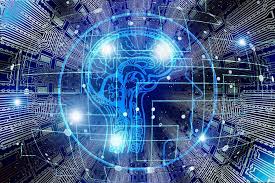
A new study says AI agents can create shared language conventions. Learning how this happens could help us better manage agents in the real world.

Four large language models (LLMs) were put through the Turing test. One model – OpenAI's GPT-4.5 – was deemed indistinguishable from a human more than 70% of the time.

Interacting with AI chatbots like ChatGPT can be fun and sometimes useful, but the next level of everyday AI goes beyond answering questions: AI agents carry out tasks for you.

Increasing model size does not lead LLMs to gain emergent reasoning abilities, meaning they will not develop hazardous abilities and therefore do not pose an existential threat.

The circuit components can seamlessly switch between acting as resistors, memory capacitors, artificial neurons, and artificial synapses. A silicon brain that can rewire itself just like ours might not be so far away.

Current artificial intelligence (AI) technology is powerful, but often relies on high energy consumption. U.S. researchers have devised a solution that reduces the AI model training’s carbon footprint.

Giving researchers and companies freedom to explore, in order to seek these positive achievements from AI systems, means opening up the risk of developing more advanced ways to create deception and other social problems.

Robbie Barrat, from US, developed the code for the AI “Portrait of Edmond Belamy” that sold for $432,500 at an internationally celebrated art auction.

Test tube chemistry using synthetic DNA molecules can be utilized in complex computing tasks to exhibit artificial intelligence

DeepCube, an artificially intelligent system learned to dominate Rubik’s Cube without any human intervention. This research could be used to solve real-world problems, such as predicting the 3D shape of proteins.